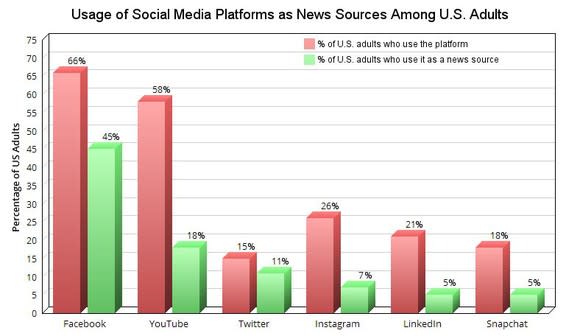A Foolish Take: A Majority of Americans Get News From Social Media
According to a recent report from the Pew Research Center, 67% of American adults now "get at least some of their news" from social media. That's up from 62% in 2016.

That trend is troubling, since Facebook (NASDAQ: FB), Alphabet's (NASDAQ: GOOG) (NASDAQ: GOOGL) Google, and Twitter (NYSE: TWTR) have admitted that it's difficult to filter out fake news stories. All three companies were recently implicated in selling ads to Russian operatives, who used their platforms to spread fake stories in order to divide Americans during last year's presidential campaign.
Facebook, Google, and Twitter have all vowed to clean up their acts. Facebook plans to hire 1,000 new employees to monitor ads on the platform. Google upgraded YouTube's algorithm to halt the promotion of conspiracy theories and fake news, and Twitter recently deleted over 200 Russian bot accounts.
Those are steps in the right direction, but it's unclear if they'll fix the ongoing problems with fake news on social media. For now, investors should see if the issues have affected these companies' relationships with advertisers. Some advertisers previously boycotted YouTube over their ads appearing alongside racist and homophobic videos, so Facebook and Twitter should proceed with caution.
More From The Motley Fool
Why You're Smart to Buy Shopify Inc. (US) -- Despite Citron's Report
6 Years Later, 6 Charts That Show How Far Apple, Inc. Has Come Since Steve Jobs' Passing
NVIDIA Scores 2 Drone Wins -- Including the AI for an E-Commerce Giant's Delivery Drones
Suzanne Frey, an executive at Alphabet, is a member of The Motley Fool's board of directors. Leo Sun has no position in any of the stocks mentioned. The Motley Fool owns shares of and recommends Alphabet (A shares), Alphabet (C shares), Facebook, and Twitter. The Motley Fool has a disclosure policy.

 Yahoo Finance
Yahoo Finance 